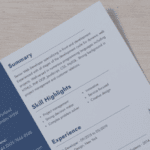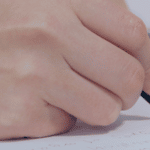- Profile Evaluation
- Countries
Beginner's Doubts
Study in USA
- Exams
- Finances
- Documents
Beginner's Doubts
Statement of Purpose (SOP)
Letter of Recommendation (LOR)
Other Documents
- Case Studies
Case Studies
- How Udit got an admit from University of Rochester With Rs. 28 Lakhs Scholarship
- 90th ranked to the 10th Ranked university in USA for MSBA - with $18,000 Dean scholarship - Anmol created history with Ace My Prep
- A distance learning BBA and just 1 year experience, no GMAT, was enough to get Vatsal into his dream school
- Journey of Jivika - 3 GPA fresher background, along with the Profile enhancement of Ace My Prep, got into the best Business and Brand Analytics universities of USA
- Journey of Anuj - From not getting any top 30 universities in his free shortlists to getting a direct admission to the 9th ranked university with a scholarship
- Journey of Sanchit - 48% in Bcom and the best MBA universities of the world. Is it Possible?
- Journey of Sahil - Mumbai University to Imperial College London
- Journey of Gowtham - From Loyola College, Chennai to London Business School
- Journey of Harsh - From a Bachelor's dropout to a 100,000$ scholarship in a Top 30 USA university
- Journey of Hitansu - Boston University MBA With $45,000 Scholarship
- acemyprep.com
- What is LOR?
- Common mistakes in LOR
Common mistakes in LOR

Pragya Sharma ✅
Co-Founder @ Ace My Prep & Study Abroad Expert
- 43,579 Views

LOR or Letter of Recommendation is one of the few documents not drafted from the student’s point of view but from their academic professors or professional colleagues. The goal of the editor is to make this document as error-free and streamlined as possible. Numerous mistakes are prone to happen while editing LORs. Some are easy to notice, while others need you to restructure and revamp the whole letter. To avoid unnecessary corrections, we need to be mindful of errors while drafting the letters.
- There should always be avoidance of spelling and grammatical mistakes at all costs. Errors in grammar reflect a poor grip on the language and an unwillingness to re-check the document. That reduces the authenticity of documents and it loses the gravitas it needs.
- A casual tone is an instant rejection in these scenarios. The wording should be formal and respectful. Writers should have a keen sense of judging whether a word is casual or formal. Any abbreviation, slang or term pertaining to texting culture should never be used anywhere.
- We should be mindful of the words we are using. No word should be used repeatedly or multiple times. This causes the document to look less than agreeable and reflects a lack of vocabulary. To avoid this problem, use synonyms or try to reframe the sentence.
- Plagiarism should be as minimized as possible to give the document a genuine feel. The only exception to this is when you are directly quoting someone else.
- You should always write only the relevant information in the appropriate order. Unnecessary elements bring down the letter as it is a formal and focused type of letter. Keep the letter focused on the skills acquired by the student and their experiences in a professional manner.
- The first paragraph should always be concerned with the referee’s information and their relationship with the student during the professional part of their lives. To reiterate the previous two points, the referee’s perspective should only focus on the candidate’s role to keep the letter focused and avoid unnecessary information.














